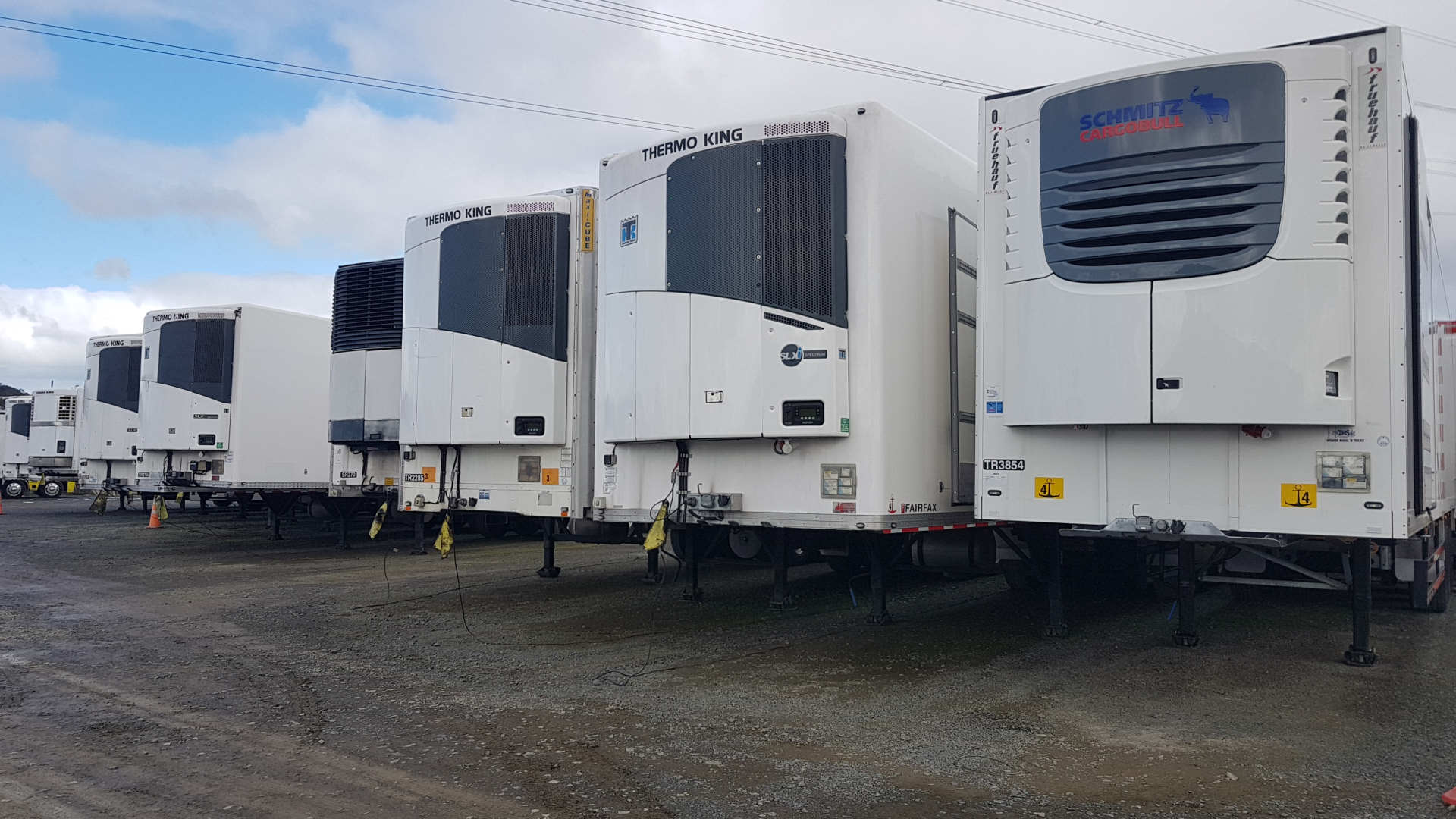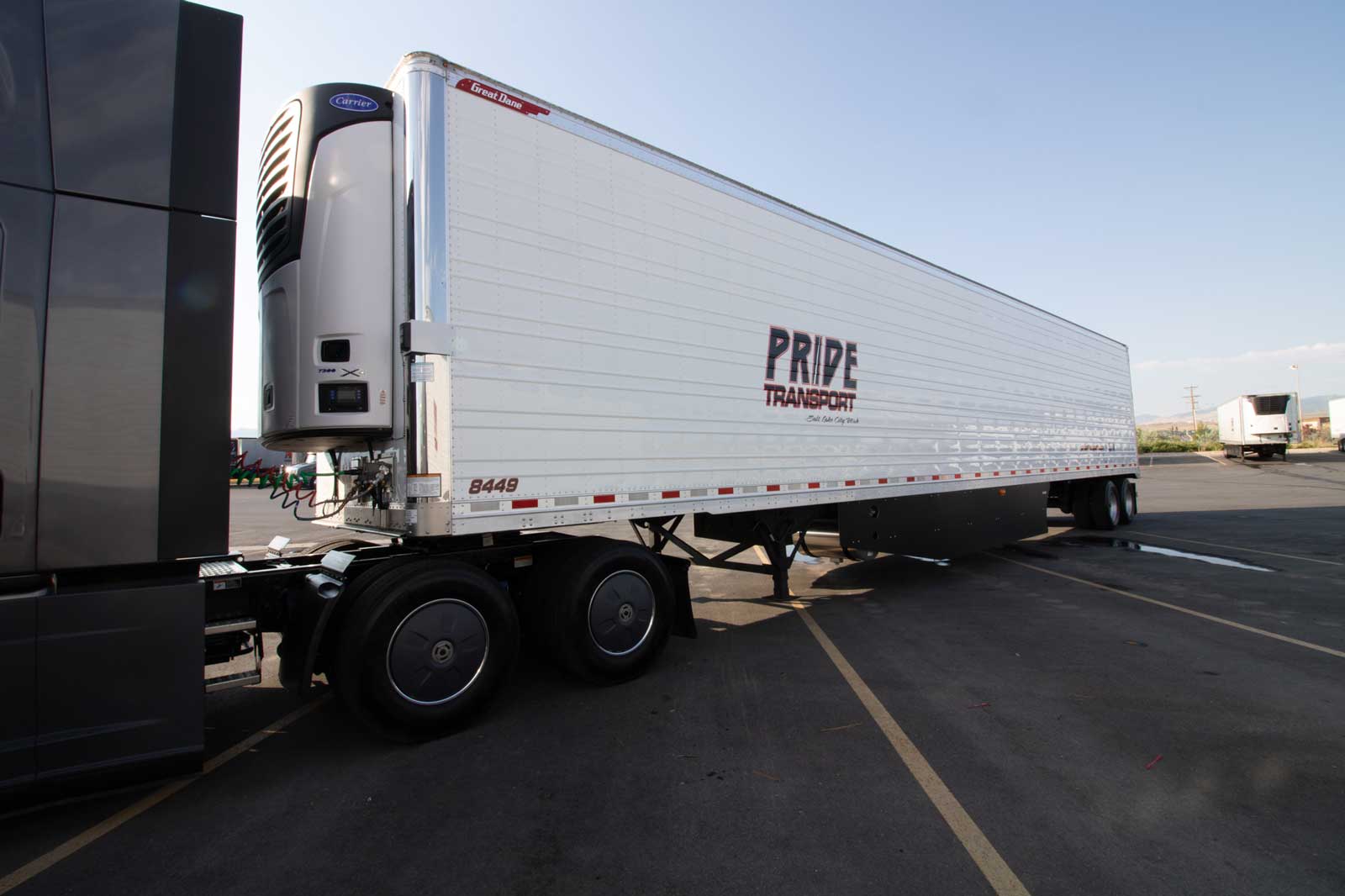Reefer Trucks Thermo King: Blazing A Trail in Cold Chain Innovation
Reefer Trucks Thermo King: Blazing A Trail in Cold Chain Innovation
Blog Article
Leading Innovations in Transportation Refrigeration: Enhancing Performance and Security
The landscape of transport refrigeration is undertaking considerable improvement, driven by developments intended at improving both performance and security. As these innovations continue to progress, it is crucial to discover their effects on functional practices and regulatory compliance, motivating a more detailed exam of just how they improve the future of transportation refrigeration.
Smart Temperature Monitoring Solutions
In the realm of transportation refrigeration, wise temperature tracking systems have actually become a critical technology for making sure the integrity of temperature-sensitive products. These innovative systems utilize Net of Points (IoT) modern technology to give real-time information on temperature level changes, allowing operators to maintain optimum conditions throughout the supply chain. By constantly tracking the temperature level of cooled containers and vehicles, firms can swiftly recognize deviations that may endanger item quality.

Furthermore, smart surveillance systems usually integrate automated alerts and alerts, allowing stakeholders to respond without delay to any prospective issues. This positive technique not just decreases the threat of wasting yet likewise enhances conformity with governing standards controling food safety and pharmaceutical transportation.
The assimilation of information analytics within these systems also assists in anticipating maintenance, helping operators to anticipate possible equipment failures prior to they happen. This capability minimizes downtime and maximizes operational effectiveness, eventually leading to set you back financial savings.
Eco-Friendly Refrigerants
Smart temperature level tracking systems play an essential role in preserving item top quality, however the performance of transportation refrigeration also hinges on the option of cooling agents used. In contrast, emerging alternatives like hydrocarbon-based refrigerants and hydrofluoroolefins (HFOs) existing lower GWP choices, supplying both efficiency and sustainability.
These environmentally friendly refrigerants not only minimize ecological impact but likewise line up with worldwide laws aimed at eliminating unsafe substances. Their adoption can lead to enhanced energy performance, eventually lowering operating expense for transport refrigeration systems. The usage of all-natural refrigerants, such as ammonia and carbon dioxide, has gained grip due to their superb thermodynamic buildings and lower ecological impact.
Purchasing green cooling agents is not merely a governing conformity procedure; it stands for a strategic choice that enhances brand credibility and promotes customer commitment. reefer trucks thermo king. By focusing on sustainable methods, business can contribute to a greener future while making certain the stability of carried goods
Advanced Insulation Materials
Utilizing innovative insulation materials is crucial for maximizing transportation refrigeration systems, as they substantially enhance power effectiveness and maintain constant temperature control. Typical insulation techniques often fall brief in preventing thermal transfer, resulting in increased energy intake and varying temperatures within refrigerated compartments.
Arising materials such as vacuum cleaner shielded panels (VIPs) and aerogels provide superior thermal resistance, permitting thinner profiles without jeopardizing efficiency. VIPs, as an example, use a vacuum layer to minimize convective and conductive warmth transfer, making them perfect for space-constrained applications. Aerogels, known for their lightweight and porous framework, offer extraordinary insulation while considerably lowering overall system weight.
Additionally, including phase adjustment materials (PCMs) into insulation systems can additionally maintain temperature levels throughout transit. These materials take in and launch thermal power, effectively buffering against exterior temperature variations.
The combination of these sophisticated insulation products not just decreases the operational prices connected with energy usage however likewise extends the shelf life of temperature-sensitive products. As the transport refrigeration market remains to advance, the fostering of cutting-edge insulation technologies will certainly be pivotal in improving both performance and safety and security in chilled transportation.
Automated Course Optimization
The performance of transportation refrigeration systems is substantially enhanced through automated course optimization, which leverages real-time information and my response advanced formulas to identify one of the most reliable courses for delivery. By analyzing different factors such as traffic patterns, weather, and distribution home windows, these systems can significantly lower traveling time and gas usage.
Automated route optimization decreases human mistake and subjective decision-making, which can cause ineffectiveness. This innovation enables fleet supervisors to allocate sources extra successfully, making sure that chilled goods maintain their called for temperature level throughout the journey. By maximizing paths, companies can likewise improve consumer satisfaction with prompt deliveries.
Additionally, automated systems can adapt to unpredicted scenarios, such as road closures or unexpected traffic spikes, enabling for dynamic rerouting. This adaptability not only secures the integrity of temperature-sensitive items but also adds to overall functional efficiency.
Carrying out automated route optimization can result in significant price financial savings while decreasing the carbon impact related to transportation. As companies increasingly prioritize sustainability, this technology stands apart as an essential element in modern-day transportation refrigeration, lining up functional objectives with environmental responsibility. Eventually, automated course optimization represents a considerable innovation in the quest for efficiency and safety in transportation refrigeration.

Real-Time Data Analytics
Automated path optimization dramatically gain from the combination of real-time data analytics, which offers critical understandings into the efficiency of transportation refrigeration systems. By using real-time data, transportation drivers can keep track of temperature variations and devices efficiency, making sure that disposable goods are kept within needed criteria throughout transit. This positive method not just improves the quality of the moved products yet also minimizes the danger of spoilage and loss.

In enhancement to improving efficiency, real-time analytics improves safety and security by making certain compliance with regulative standards for see this website temperature level control. This not just secures public health and wellness but additionally strengthens a business's track record - reefer trucks thermo king. As the transportation refrigeration industry advances, the combination of real-time data analytics becomes a cornerstone for driving development, sustainability, and operational quality
Verdict
Finally, the advancements in transport refrigeration substantially boost both efficiency and safety within the sector. Smart temperature monitoring systems and real-time data visit our website analytics provide vital oversight, while environment-friendly refrigerants and progressed insulation materials add to sustainability and power efficiency. In addition, automated path optimization formulas not only minimize travel time but likewise minimize environmental influence. Jointly, these advancements stand for an essential development in transportation refrigeration, guaranteeing conformity with regulative requirements and advertising a greener future.
The landscape of transportation refrigeration is undertaking substantial transformation, driven by advancements aimed at boosting both efficiency and safety and security.Smart temperature monitoring systems play an important function in preserving item top quality, yet the performance of transportation refrigeration additionally pivots on the choice of refrigerants used. Their adoption can lead to enhanced power performance, inevitably decreasing operating expenses for transportation refrigeration systems. Eventually, automated path optimization represents a significant development in the pursuit for efficiency and safety and security in transportation refrigeration.
In final thought, the innovations in transportation refrigeration considerably enhance both performance and safety and security within the market.
Report this page